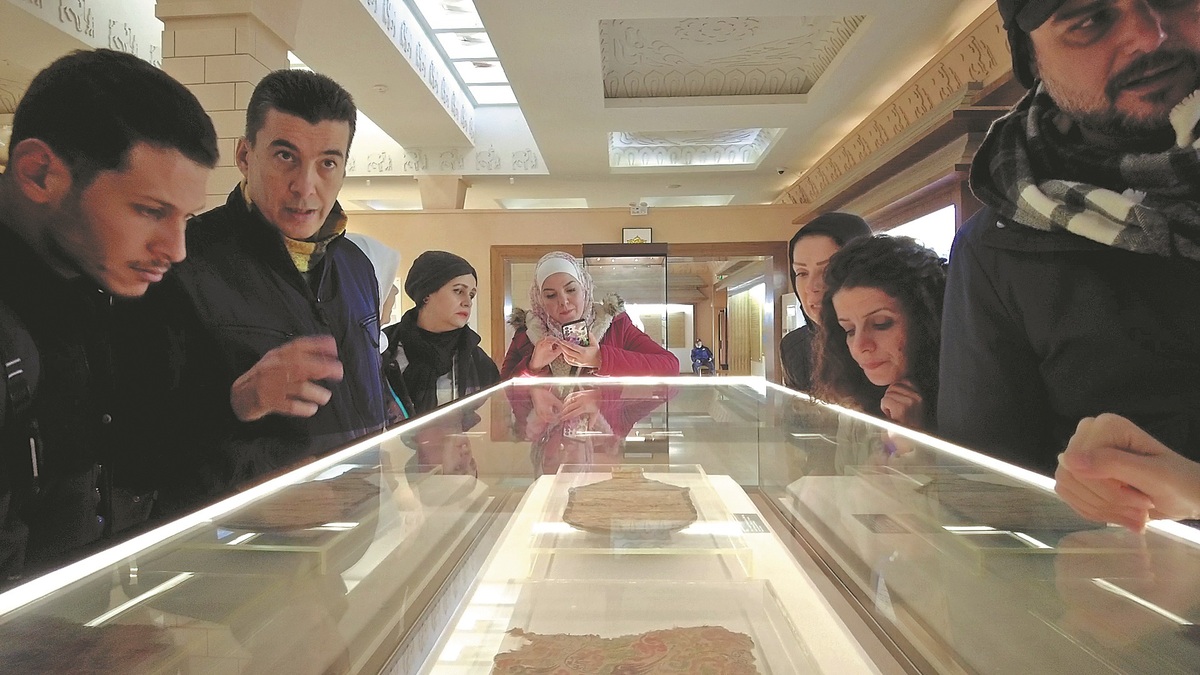Mogao Caves' preservation inspires Syrian experts
Visitors from war-torn country witness how cultural protection work can succeed. Yao Yuxin reports in Dunhuang, Gansu.


Impact of war
Beyond ruining numerous cultural artifacts, the war also altered the development priorities of Syria, said Jihad Abu Kahla, director of the Damascus Countryside Antiquities Department at the DGAM.
Reviving the economy, securing people's livelihoods, and maintaining stability have taken precedence, making cultural heritage preservation less of a priority, Abu Kahla said.
Sanctions imposed by the United States in June 2020 have also added formidable obstacles to cultural restoration efforts in Syria after the war, according to Ahmad Dali, director of the digitalization department at the DGAM.
Dali said the US' restrictions on exporting materials and equipment necessary for artifact restoration to Syria, coupled with a shortage of skilled professionals and the economic burden of cultural preservation, have forced many restoration projects to be shelved.
Nevertheless, Dali's department is working on digitizing documentation on Syrian cultural artifacts and carrying out emergency repairs to the best of their abilities.
"Construction of a national identity is achieved through the inheritance and transmission of cultural heritage from one generation to the next," Abu Kahla said.
"Preserving cultural artifacts is tantamount to safeguarding the future of a nation."


















